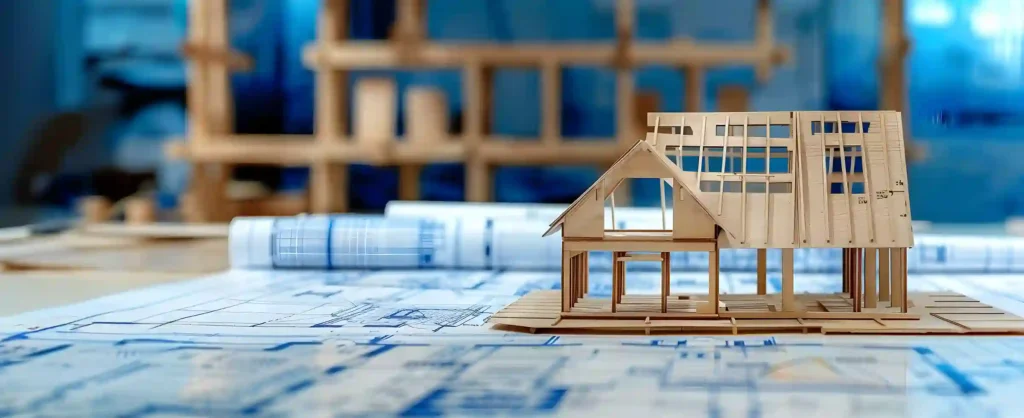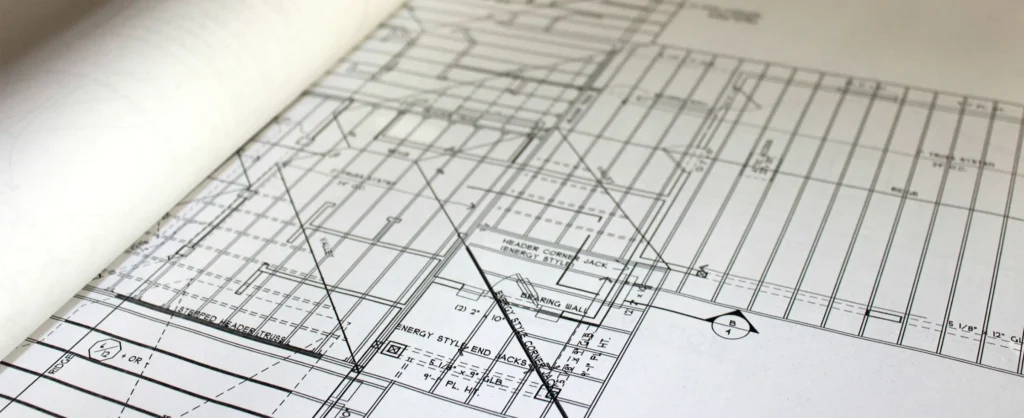Artificial intelligence has recently evolved from a science-fiction staple understood by a small few to a hotly debated topic rapidly manifesting itself in a practical, real-world context. ChatGPT, for instance, has become synonymous with the potential and dangers of artificial intelligence. And, in a more commercial context, an increasing number of enterprises and industries are seizing the opportunity afforded by artificial intelligence to pioneer new ways of automating their infrastructure. From obvious early adopters like the retail and tech industries to the more atypical innovations seen in entertainment and finance, the rising tide of artificial intelligence seems unstoppable.
However, not every industry has such a straightforward route towards AI adoption. Encompassing property, infrastructure and industrial development, the construction industry is notorious for its slowness in adopting disruptive new technologies. The industry’s resistance to innovation is so widespread that the World Economic Forum noted that it has remained unstructured and reactive despite past technological advancements.
With the COVID-19 pandemic speeding its adoption of digitalisation and automation, however, the construction industry is poised to see transformative change from the use of artificial intelligence. And, as the largest industry in the global economy which accounts for 13% of the world’s GDP, the construction industry could see a rise in value of $1.6 trillion a year through the productivity changes artificial intelligence can offer.
Are you a property investor or a techie interested in exploring how AI advancements could define your next big investment decision? Read on for our CCG overview of three ways artificial intelligence could lead to some very real gains for the construction industry.
1. Manufacturing-Level Efficiency
One of the more obvious ways artificial intelligence could change housebuilding for the better is through manufacturing-level innovations that drive efficiency. According to a 2020 report on the construction industry by McKinsey, the constant cost pressure imposed by tight public budgets and housing affordability issues has created a need for industry stakeholders to find ways to streamline their manufacturing processes.
Many of the long-term productivity problems being faced by the construction industry have solutions rooted in AI. For example, one solution posed by a research team from the University of West England involves the use of AI-operated sensors and actuators to communicate information in real-time. Through the use of 5G communication technology, these sensors could offer high-fidelity real-time data on construction projects to a range of digital devices to facilitate data sharing while cutting down on costs, waste, and energy usage.
Global consultancy firm Deloitte proposed that AI could be introduced at several points during the construction phase of housebuilding to ensure the efficient use of resources, anticipate risk factors and minimise costs. These include offering real-time insights during supplier negotiations through image recognition, organising tasks and responsibilities through input optimisation algorithms, and generating predictive models for high-risk events like storms and transport shutdowns. The total potential savings from these implementations could amount to as much as 10-15% of total construction costs.
The standardisation of the manufacturing process is arguably the biggest contribution artificial intelligence could make to the construction industry, especially in the case of modern methods of construction such as modular construction. McKinsey identified the integration of automated production systems as the next step in the transition towards efficient off-site manufacturing, with digital technologies offering a greater level of control over value chains and data-driven decision-making. By adopting AI automated manufacturing-level innovations like building-information modelling and automated object libraries, housebuilders could significantly improve on- and off-site collaboration, drive earlier decision-making and ultimately create a better digital landscape for the buying and selling of property. And, with a recent survey by IBM showing that 76% of Chief Operating Officers at major construction companies believe increasing facility-level automation will have a positive impact on overall operational efficiency, AI has plenty of potential to positively influence manufacturing-level efficiency.
2. Innovation and Quality Assurance
As much as artificial intelligence is seen as a modernised administrative tool, it also has capabilities that make it ideal for innovating new solutions and practices in the construction industry while standardising product quality.
More specifically, generative AI has been highlighted as a particular type of artificial intelligence technology designed to produce data and content using machine learning. According to the Financial Times, generative AI is poised to provide a significant 7% boost to the global gross domestic product (GDP), affecting over 300 million jobs. For architects, it has the potential to further the construction industry’s digitalisation, increasing the efficiency of their design process and offering improved 3D modelling for superior innovation in the conceptual phase of housebuilding.
McKinsey has further suggested that one of the ways the construction industry could achieve the previously mentioned $1.6 trillion rise in value is through using digital technology and advanced automation to rethink the design and engineering processes, contributing to a productivity boost of 50-60%.
In terms of quality assurance, another report on the potential of AI in the construction industry by McKinsey argues that neural networks and other deep-learning technology can be used to assess drone-collected images to identify construction defects and compare them against existing design blueprints. They could also use cluster behaviour production to sort through data and identify important information for making manufacturing or design-level recommendations that support better quality in the finished product.
3. Maintenance and Customer Services
The utility of artificial intelligence in the construction industry does not necessarily have to end once a property has been built. AI tools can also be used to better maintain properties and field customer inquiries, offering a more continuous service that keeps them functioning for much longer and at much higher standards than ever before.
AI language tools have already been employed by a range of companies and industries to improve customer service availability and responsiveness, but there remains some untapped potential to draw on a wider range of existing data sets to source more comprehensive product information, regulatory standards, and sustainable materials to improve the long-term efficiency and sustainability of built property.
The use of AI-controlled analytics tools can also significantly reduce energy consumption and meet otherwise ambitious cost-saving targets. One example from IBM’s breakdown of the use of artificial intelligence in construction using live data from micro-location forecasting to automate internal heating and cooling systems, leading to less heat and energy wastage. The same analytics technology could also isolate inefficient energy use by monitoring various gas, electric, and water systems throughout a property and offering suggestions about where to cut costs. They might even be able to use sensor signals and patterns to deploy real-time solutions for preventative maintenance on existing properties.
The Future of AI and Concept Capital Group
While implementing artificial intelligence throughout our company’s value chain might be a ways off, Concept Capital Group has already built its business around modernising the construction industry and providing a more streamlined approach to housebuilding for investors and tenants alike.
We use off-site manufacturing in the form of modular construction to standardise the homes we produce and ensure consistent quality across the board. With the British Standards Institution’s BS3632 specifications for year-round residential living guiding our efforts, we lock quality, comfort, and efficiency into our modular properties, making each home an ethical investment opportunity you can be proud of.
As the industry becomes more digitised and artificial intelligence develops a more universal presence, we remain confident that we can provide our investors with just as much flexibility and reliability in the future as we do now, if not more. To find out more about investing with Concept Capital Group contact our team today.













